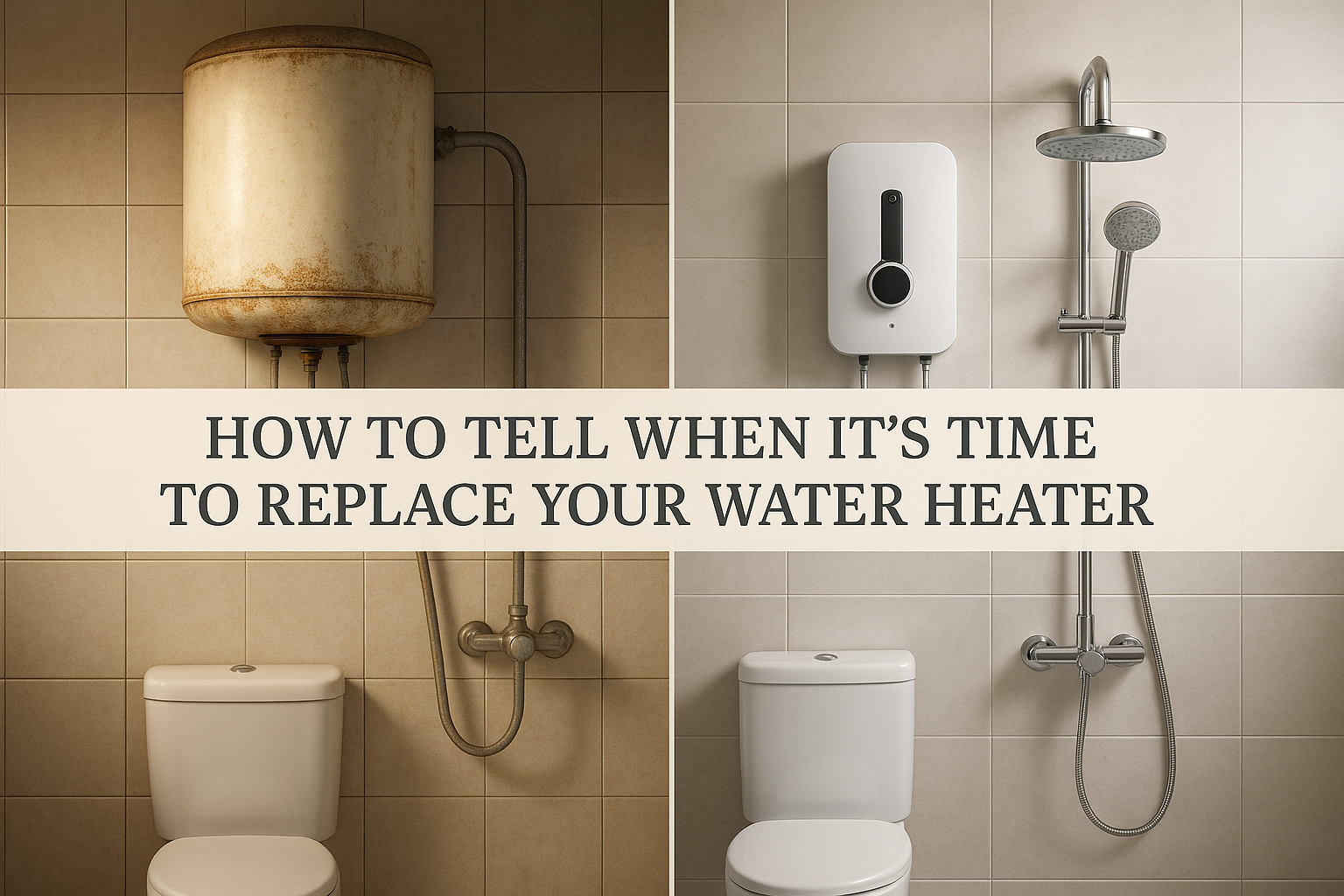Most of us don’t think much about our water heaters—until we suddenly lose hot water or notice something isn’t working quite right. Water heaters are essential for comfort, but like any home appliance, they don’t last forever.
If you’ve had your unit for several years, or if you’ve started noticing a few warning signs, it might be time to consider a replacement. In this guide, we’ll walk you through the common signs that your water heater is nearing the end of its life—and why upgrading to a modern, instant water heater could be the smartest move for your home.
1. Your Water Heater Is Over 10 Years Old
The typical lifespan of a traditional tank water heater is around 8 to 12 years, depending on usage, maintenance, and water quality. If your unit is over a decade old, it’s worth evaluating whether it’s still performing efficiently.
Older heaters often become less reliable, use more energy, and are more prone to issues like leaks or corrosion. Even if it still works, it may no longer be running at its best—and could be costing you more in the long run.
2. Inconsistent or Lukewarm Water
One of the clearest signs of a failing water heater is inconsistent water temperature. If you’re noticing that your hot water runs out faster than it used to, or that it never gets quite as hot as before, the heating element may be deteriorating.
This can be particularly frustrating during showers or when running multiple taps. If this problem is recurring, it may be more cost-effective to replace the unit rather than repair it repeatedly.
3. Strange Noises Coming from the Tank
Over time, sediment can build up inside traditional tank water heaters. When the sediment hardens, it can cause banging, popping, or rumbling sounds during operation.
These noises don’t just mean the heater is working harder—they’re often a sign of internal damage or inefficiency. A noisy tank is usually a sign that it’s time to either flush the unit (if possible) or consider replacing it entirely, especially if the sounds persist.
4. Rust-Colored Water or Metallic Taste
If you’re seeing rusty or discolored water coming from your hot water tap, or if the water has a strange metallic taste, it could be due to corrosion inside your heater tank.
Rust is a sign that the inside of your unit may be wearing down, and eventually, that corrosion could lead to a leak. If changing the pipes doesn’t solve the issue, the water heater itself may need replacing.
5. Leaks Around the Heater
Water pooling at the base of your heater or slow dripping around the unit are signs you should never ignore. A leaking water heater could indicate internal tank failure or loose connections, and either issue poses a risk to your home’s safety and structure.
In many cases, it’s not worth repairing a leaking tank—replacement is often the safer, longer-lasting solution.
6. Your Energy Bills Are Increasing
A decline in energy efficiency is a less obvious, but equally important, reason to upgrade your water heater. Older units often use more electricity or gas to heat the same amount of water.
If your energy bills have gone up and you can’t explain why, your water heater might be the hidden culprit. Newer models, especially instant water heaters, are designed to use energy only when needed, helping you save on monthly costs.
7. Frequent Repairs
Calling the plumber once in a while is normal. But if you’ve had to repair your water heater more than once or twice in the past year, it’s worth asking if the money you’re spending on maintenance could be better spent on a new, more reliable unit.
Frequent repairs not only add up in cost—they also create inconvenience for your household.
Why Consider Switching to an Instant Water Heater?
If your current heater is showing its age, now may be the perfect time to switch to a tankless instant water heater. These units provide hot water on demand, save space, and are more energy efficient than traditional tanks.
Models like the Champs Instant Water Heater are designed for Filipino homes. With built-in ELCB protection, anti-scald technology, IP25 splash-proof rating, and high-precision power selectors, they’re a modern upgrade that offers both comfort and safety.
Best of all, they’re compact, stylish, and easy to install—even in small bathrooms.
Final Thoughts
Water heaters don’t last forever—and when they begin to fail, they often give you warning signs. Whether it’s inconsistent temperature, strange noises, or rising bills, paying attention early can save you from unexpected breakdowns or water damage later.
If you’ve noticed any of the signs above, it may be time to stop repairing and start upgrading. A newer, more efficient system will offer better performance, lower costs, and the peace of mind that your family’s comfort is in good hands.

